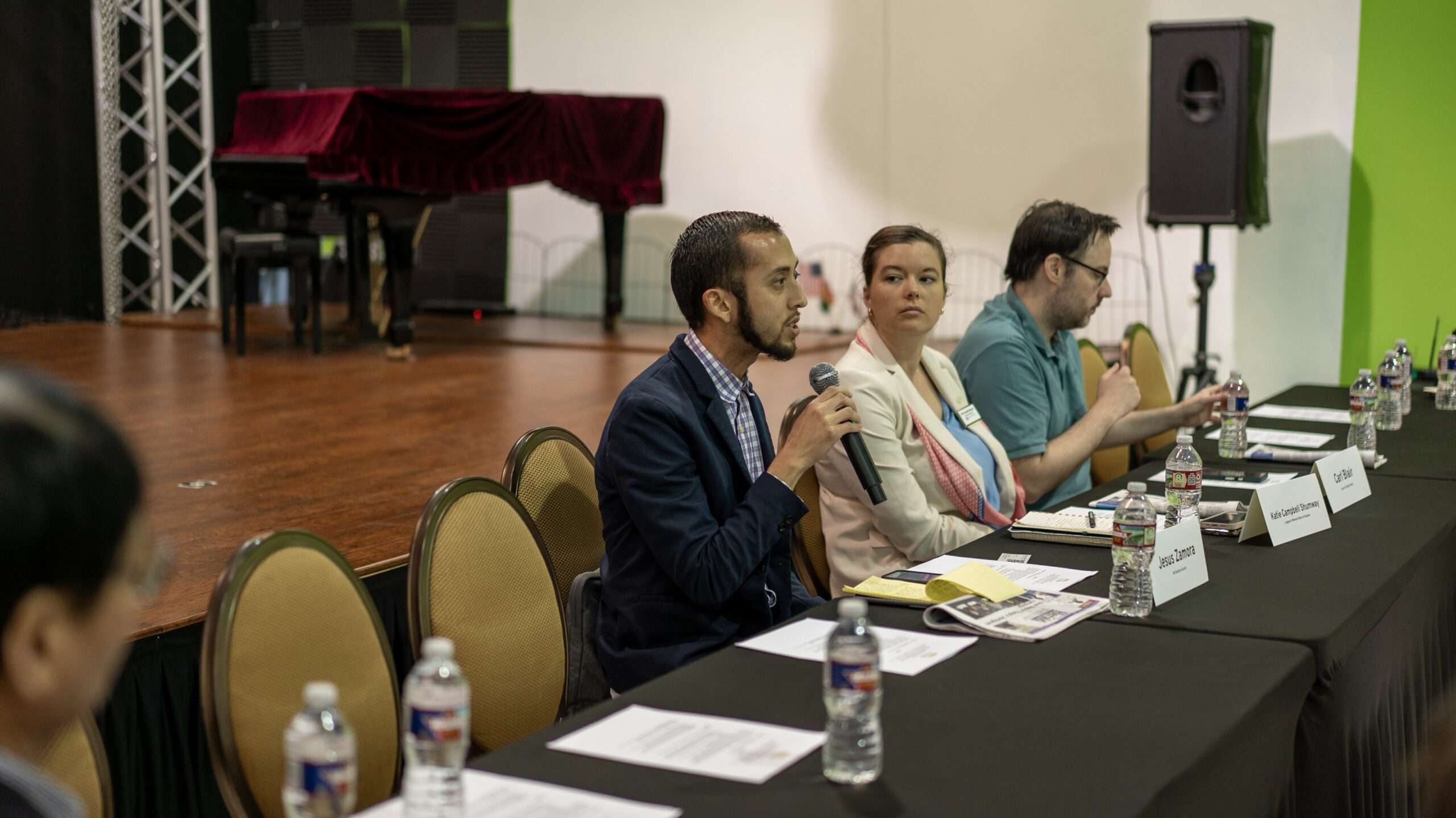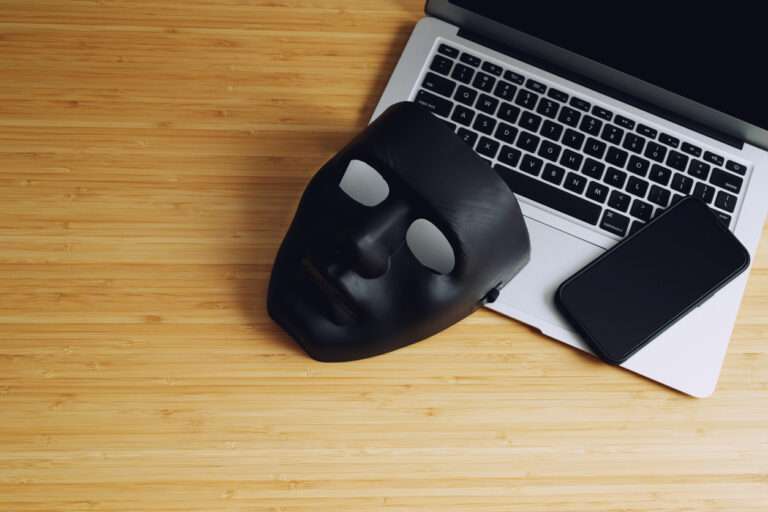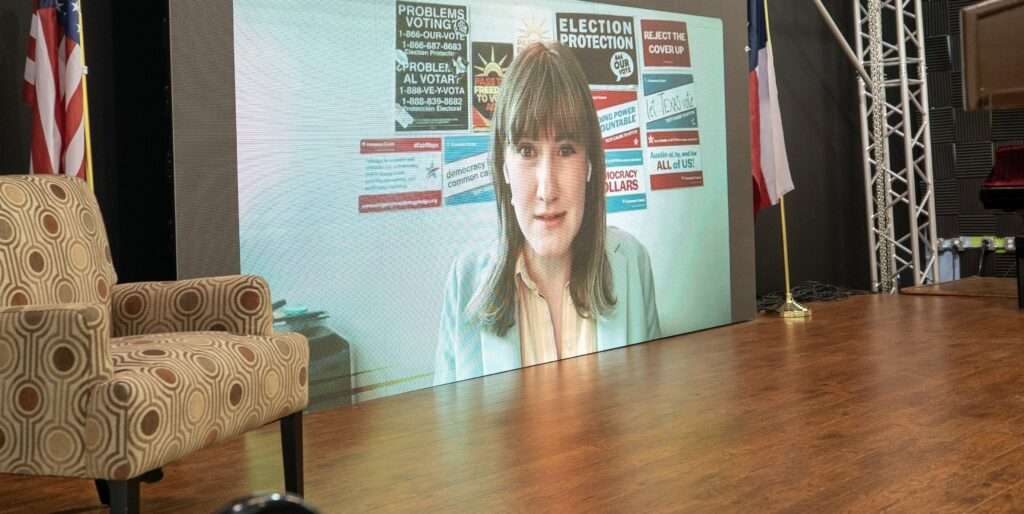
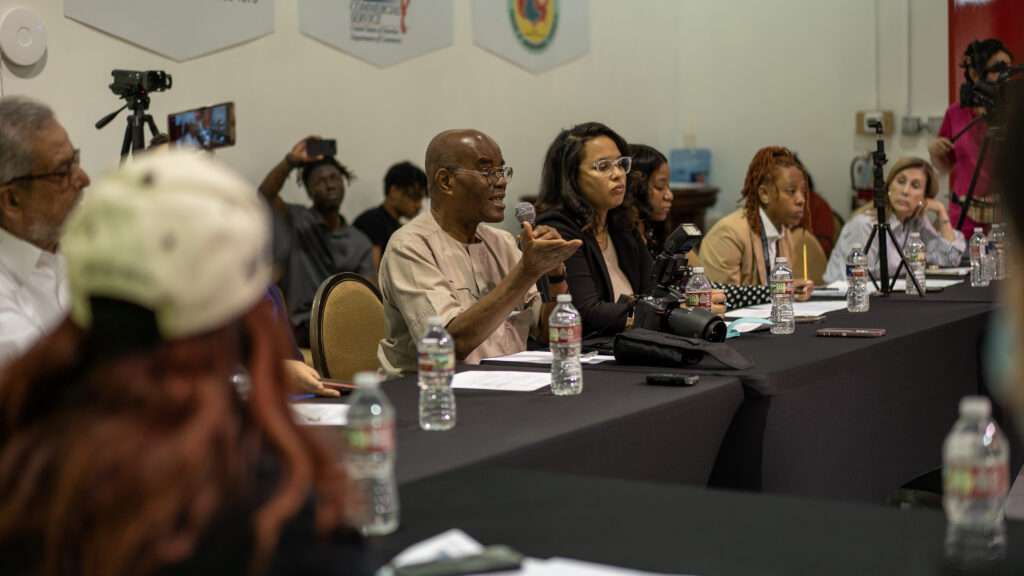
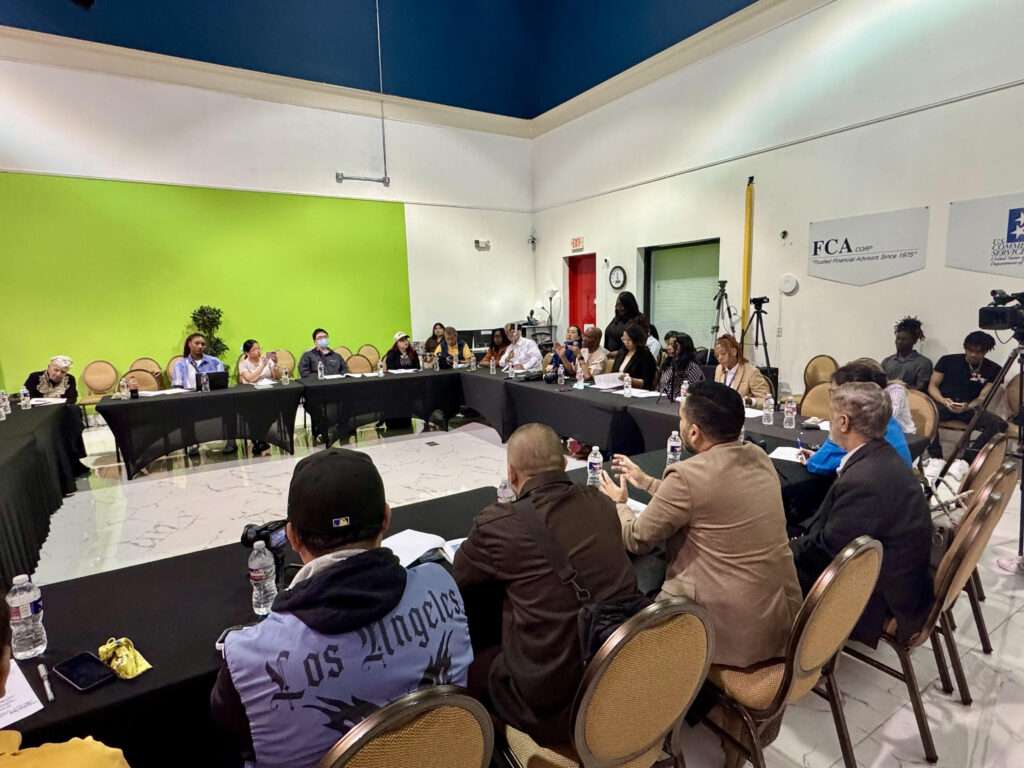
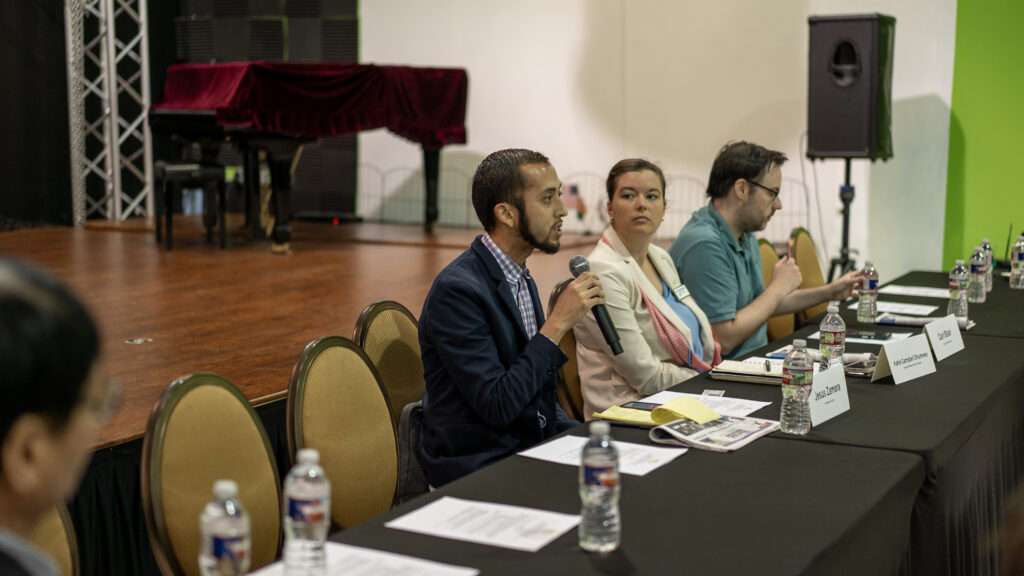
Houston Community Media recently held a briefing to discuss concerns about voting rights issues in Texas.
One of the main concerns is that the Texas Legislature is currently considering several bills that could seriously harm voter access and election integrity across the state.
The briefing, held March 18th, featured four community leaders who shared their insights and answered questions for the group.
SB 16: Proof of Citizenship Requirement
Panelist: Emily French, Director of Policy, Common Cause Texas; www.commoncause.org
Emily French outlined a proposed law that would mandate Texans present documented proof of citizenship to register to vote or update their voter information.
“This is a solution in search of a problem. There’s no evidence that non-citizens are voting in any significant numbers.” – Emily French
She cautioned that the measure could unfairly impact recently naturalized citizens and married women, potentially restricting them to “limited ballots” that leave out important races.
“If this law had been in effect when I got married, I would’ve had to go in person twice—once to change my name, and again to change my address—both with proof of citizenship.”
Threat to Countywide Voting on Election Day
Panelist: Carl Blair, Senior Election Attorney, Texas Civil Rights Project; www.texascivilrightsproject.org
Carl Blair discussed how Texas lawmakers are considering legislation that could restrict or eliminate countywide voting on Election Day. Currently, this system allows voters to cast ballots at any polling place within their county, offering greater flexibility and convenience.
“There’s bipartisan support for countywide polling—yet there’s still a push to abolish it and force people back to precinct-only voting.”
Election officials warn that such changes could lead to voter confusion, longer lines, and increased costs for counties to establish more polling locations and hire additional staff.
Impact on Naturalized Citizens and Name-Changers
Panelist: Katie Campbell Shumway, Executive Director, League of Women Voters of Houston; www.lwvhouston.org
Katie Shumway highlighted how bureaucratic disconnects between agencies complicate voter registration for naturalized citizens.
“The Social Security Administration, DPS (Department of Public Safety), USCIS (United States Citizenship and Immigration Services), and the voter registrar don’t talk to each other. So when someone becomes a citizen, they have to update every system themselves.”
She also emphasized the risk to married women:
“86% of married women change their last name—but if your ID doesn’t match your birth certificate, and you don’t have a current passport, you can’t register.”
Shumway also shared, “the disenfranchising of millions of voters is what keeps me up at night.” She suggested that people call their representatives once a week and let them know your concerns because they have to keep track of calls and letters. Also, consider showing up at local offices to address concerns in person.
A final thought from Shumway, “Everything starts in Texas… we are a testing ground.”
Fear and Misinformation in Immigrant Communities
Panelist: Jesús Zamora, Texas Field Director, Mi Familia en Acción; www.mifamiliavota.org
Jesús Zamora described how fear of government surveillance and policy changes have discouraged civic participation.
“We’ve seen parents afraid to send their kids to school or go to work. People are even avoiding community events.”
His organization, Mi Familia en Acción, is launching door-to-door “Know Your Rights” campaigns, focusing especially on underserved communities such as Alief, Aldine, and Spring Branch.
So what can you do to help?
Stay Informed
- Attend community briefings or town halls to learn about legislative updates.
- Follow trusted local organizations (like Mi Familia en Acción) for real-time updates and analysis.
Raise Awareness
- Share information with neighbors, friends, and family—especially those in underserved areas.
- Host or attend voter education events that explain changes and how they may affect people.
Contact Lawmakers
- Call, email, or write your state legislators to share your stance on proposed bills.
- Organize letter-writing campaigns or petitions within your community.
Get Involved
- Volunteer for door-to-door outreach, especially with “Know Your Rights” or voter registration drives.
- Partner with schools, churches, or community centers to spread awareness.
Help with Documentation
- Assist community members in gathering documents they may need for voter registration if new ID laws pass.
- Connect people to legal aid for help with naturalization or name-change documentation (like after marriage).
Register and Vote
- Make sure you and your community are registered to vote.
- Know your polling place (especially if countywide voting is restricted).
Take Action Today!
-Kim Floyd


